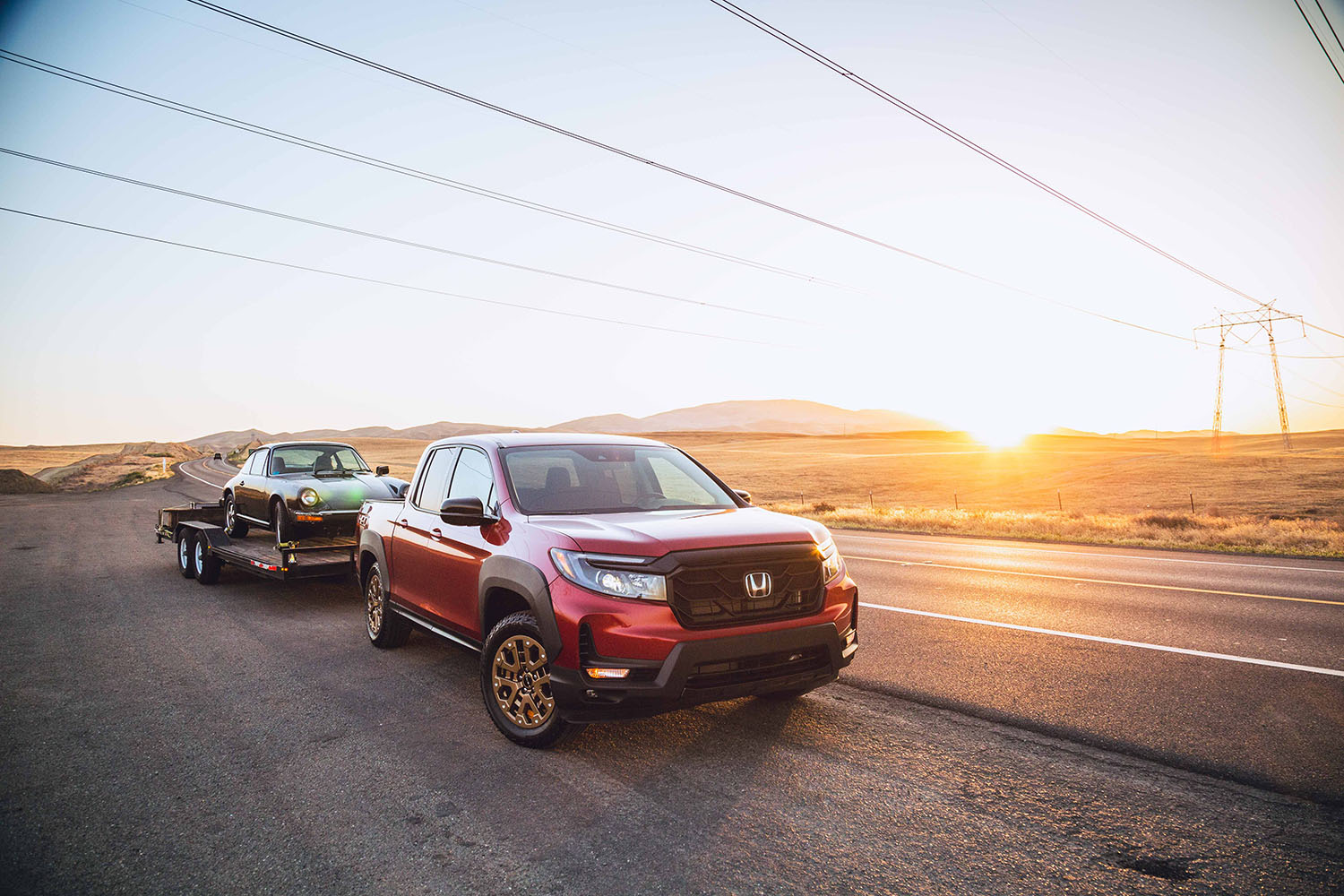What You Should Know Before Renting a Trailer
Whether it's your first time towing or you just want a refresher on renting trailers, here's what to consider before getting hitched.
 Manuel Carrillo III | Capital One
Manuel Carrillo III | Capital One
Maybe college move-in day is arriving and you know you can't fit everything in your vehicle. Maybe you just bought the Vespa of your turquoise-colored dreams and you need a way to get it back home. Or maybe you're ready to gather bulky materials for that big DIY project. Whatever the situation, you've decided that renting a trailer is the right solution. But what if you've never rented a trailer before or it's been a while? Here are a few things to consider before you get started.
Can your vehicle tow a trailer?
If you own a pickup truck or even a midsize SUV or crossover, your vehicle likely has enough towing capacity to pull a trailer. Most cars and small SUVs/crossovers are rated to tow a maximum of 1,000 pounds. Considering that even the smallest rental utility trailer weighs about 700 pounds empty, you may not have the capacity to haul much with your car.
If you don't know your vehicle's towing capacity, there are several places to check, including:
- Owner's manual
- Vehicle manufacturer's website (have your vehicle identification number on hand)
- Trailer-rental facility or its website (U-Haul is nationwide)
- Other third-party websites
The right trailer hitch and trailer light wiring
You're going to need a way to connect the trailer to your vehicle. The first thing to verify is that you have a tow-hitch receiver in the rear. If you aren't familiar with what that is, it's a square steel tube on the front of the trailer that can accept the hitch ball mount on the towing vehicle. Many modern crossovers and SUVs have a hitch receiver low in the back that's hidden by a removable piece of the rear bumper.
If the vehicle already has a hitch receiver, you have an essential piece of the puzzle. Next, check to see that the vehicle has at least a four-way flat trailer wiring socket so it can send brake light, taillight, and turn signals to the trailer. If your vehicle came equipped with a factory-installed tow package, you're likely all set with a hitch and wiring provisions.
If you don't have a hitch and/or wiring, you might be able to have them installed by U-Haul, a new-trailer retailer, a truck-accessory shop, or a mechanic. There are some nifty vehicle-specific DIY kits offered from manufacturers such as Curt and Reese, but towing should be taken very seriously. If you aren't comfortable installing a hitch yourself, it's best to seek out a professional.
Determining how much you can tow
To safely and legally tow a trailer, there's more to consider than simply your vehicle's towing capacity. You'll also need to be sure you don't exceed other vehicle weight ratings, including trailer weight, load weight, trailer tongue weight, and total weight of the loaded vehicle, including passengers and cargo.
Trailering requires a little math before you rent a carrier. U-Haul will list the empty trailer weight, so you can start there. Once you have that figure, you can look in the owner's manual for additional weight parameters. (Most of this information often can be found on the driver-side doorjamb as well.) These weight-related limits include:
- Gross vehicle weight rating: The total maximum weight the vehicle (without trailer) can handle, including passengers, cargo, vehicle fluids, and the vehicle itself.
- Gross combined vehicle weight: The total combined weight of your vehicle and the trailer, including all passengers and payload.
- Tongue weight: The total amount of weight that is placed on the tow vehicle through the trailer's tongue. The trailer, hitch receiver, and ball mount will all have limits. It's important to properly manage the tongue weight to maintain good control of the trailer. Generally speaking, tongue weight should be about 10 to 15% of the total weight of the trailer or gross trailer weight.
If there is any doubt about weights, you can find a truck stop with a scale and have your vehicle and trailer weighed.
Additional considerations
Before you arrive at the trailer-rental facility, consider picking up these items:
- Hitch ball mount: This holds the ball the trailer attaches to. Confirm with the rental facility which ball size you need. The most common are 1 7/8 inches for small trailers and 2 inches for medium and large trailers. Don't forget a hitch pin and retainer clip.
- Wire harness adapter: A four-way flat connector is most common on rental trailers, but check with your facility.
- Tie-downs and blankets: If there's a chance an item can move, it probably will. Use these to secure and protect your cargo and your vehicle.
- Tire-pressure gauge: Not only should you make sure your vehicle's tires are set to the proper pressure, you should also check the trailer's tires before and after you load it.
Written by humans.
Edited by humans.
 Jon Yanca
Jon YancaTo say cars have been a lifelong passion for Jon Yanca would be an understatement. Obsession is probably more fitting. He brings over 15 years of automotive-industry experience spanning from top enthusiast publications, to advertising and marketing, to independent auto repair. When Jon is not writing about cars, you'll find him racing on dirt, pavement, and even ice, or with a wrench in hand maintaining his fleet of vehicles.
Related articles
View more related articles